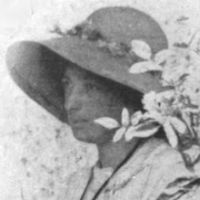A Tax-Resisting Cow.
We are accustomed to the story of the ass teaching the ancients wisdom; the modern version seems to be that the cow is on the side of the tax-resisters.
The story of what happened while Miss [Edith Kate] Lelacheur was attending a sale of a dog cart at Reading for the non-payment of the agricultural land tax on one of her farms might be deemed a practical joke on the part of the revenue authorities, but for the fact that the cow took the matter entirely into her own hands and flouted the bailiffs.
In the absence of Miss Lelacheur, a cow was seized for non-payment of other taxes; inquiry elicited the fact that “twice the bailiffs took the cow away and got it three miles or so along the road, but that then it bolted back.”
Finally they gave it up, and left Miss Lelacheur the distraining order — and the cow.
We wonder whether in due time Suffragists will have reason to worship the cow — taking a different point of view from the Hindus.
Meanwhile, we congratulate Miss Lelacheur on her tax resistance and on the noble support of her cow.
Later: We hear that force majeure has prevailed; the cow is to be sold — to a tax-resister, we hope!
Also from the same issue:
Tax Resistance.
Under the auspices of the Tax Resistance League and the Women’s Freedom League a protest meeting was held at Great Marlow on , on the occasion of the sale of plate and jewellery belonging to Mrs. [Mary] Sargent Florence, the well-known artist, and to Miss Hayes, daughter of Admiral Hayes.
Their property had been seized for the non-payment of Imperial taxes, and through the courtesy of the tax-collector every facility was afforded to the protesters to explain their action.
A quiet little group — a large crowd for Marlow — listened attentively to Mrs. Florence, Mrs. [Emily] Juson Kerr, Miss [Margaret] Kineton Parkes, and Miss [Alison] Neilans.
Mrs. Sargent Florence had been distrained upon more than once, and intends to continue her passive protest until women have the vote.
At the County Court, Woodbridge, Dr. Elizabeth Knight was charged with keeping a dog without a license and refusing to take out a license for her dog cart; Mrs. H[ortense].
Lane was charged also with refusing to pay the license for her trap.
Dr. Knight said she believed taxation and representation should go together; and Mrs. Lane, who was unable to attend, wrote to the Bench saying she refused to pay taxes as a protest against women’s political disability.
Mr. Eton White, the presiding magistrate, said his duty was to administer the law as it stood; therefore Dr. Knight was fined £2 10s. and costs, and Mrs. Lane £1 10s. and costs.
A protest meeting was afterwards held on Market Hill.
Mrs. [Lila] Pratt, hon. secretary of the Women’s Freedom League, Ipswich branch, presided, and an interesting crowd listened appreciatively to the speech of Mrs. [Emma] Sproson who explained the reason why women should adopt the policy of tax resistance and urged upon all women to make the position of the Government intolerable and untenable unless it conceded to women their common human right.
Silver belonging to Miss [Dorinda] Neligan, of Croydon, and Mrs. [Florence Gardiner] Hamilton, of Wendover, was sold for non-payment of taxes on , and vigorous protests made.
At Wendover, in the John Hampden County, an Anti-suffragist from London made a speech.

